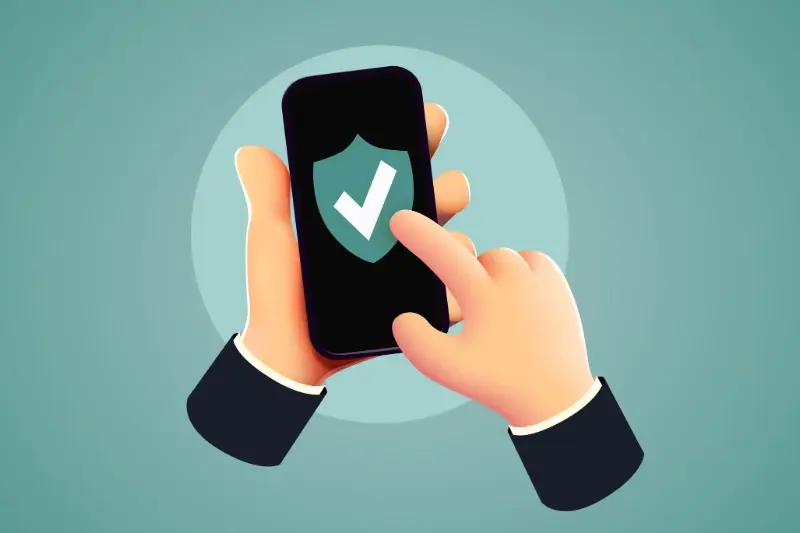From Idea to Income: Realistic Paths to App Concept Monetisation
Have you ever had that lightbulb moment where you're convinced you've stumbled upon the next big app idea? That exciting flutter in your stomach when you think about your app invention value and its potential to change lives (and maybe your bank balance too)? You're not alone - we've helped hundreds of innovators transform their ideas into reality.
The distance between your brilliant app idea and successful monetisation isn't a straight line - it's a journey of discovery, learning, and strategic decisions.
But here's the thing: while having a brilliant app concept is wonderful, turning that spark into actual profits requires more than just enthusiasm. Whether you're dreaming of app concept licensing, collecting app idea royalties, or diving into app concept pitching, there's a whole world of possibilities - and challenges - ahead.
Think of your app idea like a seed. Just as you wouldn't expect a seed to become a mighty oak overnight, transforming your concept into income requires patience, nurturing, and the right conditions to grow. Some of the most successful apps started as simple solutions to everyday problems - take Deliveroo, for instance, which began with the straightforward idea of making restaurant delivery more accessible.
In this guide, we'll walk you through the realistic paths to monetising your app concept, from protecting your intellectual property to choosing the right commercialisation strategy. We'll share practical advice drawn from our experience in the UK app development landscape, helping you navigate the journey from initial concept to potential profits - without the sugar-coating or unrealistic promises.
Understanding the Value of Your App Idea
Having a brilliant app idea is exciting, isn't it? That moment when inspiration strikes and you think, "This could change everything!" We've seen that spark in countless entrepreneurs' eyes when they first walk through our doors at Glance. But before racing ahead, let's take a thoughtful look at what makes an app idea truly valuable.
Key Components of App Value
Think of your app idea like a recipe - it's not just about the main ingredient, but how all elements work together to create something special. Here's what makes an app concept genuinely valuable:
- Problem-solving capability: How effectively does it address a real user need?
- Market size: Is there a large enough audience willing to use (and pay for) your solution?
- Uniqueness: What makes your approach different from existing solutions?
- Technical feasibility: Can it be built with current technology at a reasonable cost?
- Scalability potential: Could it grow beyond its initial market?
Remember that famous food delivery app Just Eat started with a simple idea: connecting hungry people with local takeaways. They identified a clear problem, understood their market, and built something scalable. The value wasn't in the idea alone, but in how it met a genuine need.
While it's natural to feel protective of your idea, remember that execution typically matters more than the concept itself. Think of your idea as a seed - its true value lies not just in what it is now, but in its potential to grow with proper nurturing and development.
The most valuable app ideas aren't always the most complex - they're the ones that solve real problems in elegant, user-friendly ways. Focus on understanding your target users' needs, and you'll be better positioned to assess and enhance your app's true value.
Legal Protection: Safeguarding Your App Concept
Having worked with hundreds of app innovators over the years, we've seen firsthand how proper legal protection can make or break an app's journey to market. Think of your app idea as a precious family recipe - you wouldn't want someone else claiming it as their own, would you?
Understanding Intellectual Property Rights
While you can't copyright an idea itself, you can protect specific elements of your app concept. In the UK, this typically involves a combination of patent protection (for unique technical features), trademark registration (for your app's name and branding), and copyright (for your code, designs, and content). It's rather like building a fortress around your digital castle.
Non-Disclosure Agreements (NDAs)
Before pitching your app concept or discussing app idea licensing with potential partners, having a solid NDA in place is crucial. We've seen countless entrepreneurs skip this step, only to watch their brilliant ideas appear elsewhere months later. Remember, a proper NDA should be specific to app development and reviewed by a legal professional.
Always document your app invention's development process with dated sketches, descriptions, and prototypes. This creates a clear timeline of ownership and can be invaluable if you need to prove your concept's origins.
When considering app concept pitching, remember that investors and companies will take you more seriously if you've done your homework on legal protection. Just like you wouldn't build a house without proper planning permission, don't venture into app development without securing your intellectual property rights first. This foundation of legal protection is essential whether you're pursuing app idea profits through development, licensing, or collecting app idea royalties.
Preparing Your App Idea for Market
Taking your brilliant app idea from concept to market-ready proposition requires careful preparation and strategic thinking. At Glance, we've guided countless entrepreneurs through this crucial phase, and we know it can feel overwhelming at first. Let's break it down into manageable steps.
Essential Market Preparation Steps
- Create a detailed product requirements document (PRD)
- Research your target audience thoroughly
- Identify your unique value proposition
- Develop clear user personas
- Map out core features and functionality
- Draft a realistic development timeline
Remember when Instagram was just a location-checking app called Burbn? The founders prepared for market by actually listening to their users and discovered people were mainly using the photo-sharing feature. This insight led to a complete pivot and, well, we all know how that turned out!
Validate Before You Invest
Before diving into full development, it's crucial to validate your concept. Start by creating a simple landing page describing your app idea and gather email addresses from interested users. You might be surprised - we've seen clients generate hundreds of sign-ups before writing a single line of code.
Consider developing a prototype or minimum viable product (MVP) to test with real users. This doesn't need to be perfect; it just needs to demonstrate your core concept. Think of it like offering taste samples before opening a restaurant - you want to ensure people will actually want what you're planning to serve.
Most importantly, remain flexible during this preparation phase. Your initial idea might evolve based on market feedback, and that's perfectly normal. Some of the most successful apps we've helped develop look quite different from their original concepts.
Routes to Monetisation: Finding Your Path
The path to app success isn't always about building it yourself - sometimes the smartest route is letting others bring your vision to life.
When you've got a brilliant app idea, there are several proven paths to turn that concept into income. Let's explore the most viable routes we've seen work for innovators just like you.
Direct Development and Launch
The traditional route involves developing and launching the app yourself. While this requires the most investment, it also offers the highest potential returns. You maintain complete control over your app concept and can shape its evolution. However, be prepared for development costs ranging from £20,000 to £100,000+ depending on complexity.
Licensing and Partnerships
If development isn't your cup of tea, app concept licensing could be your golden ticket. Many successful entrepreneurs have earned substantial app idea royalties by partnering with established developers. This approach requires less capital but means sharing the rewards. We've seen licensing deals typically ranging from 2-5% of revenue, though some negotiate for higher percentages.
App invention value often increases when you package it properly for potential partners. Consider creating detailed wireframes, market research documents, and a compelling pitch deck. When app concept pitching, focus on the unique problem your app solves and its market potential.
Another increasingly popular option is joining forces with a technical co-founder. This can be an excellent middle ground - you contribute the idea and business expertise while they bring the technical know-how. Just remember to get everything in writing before starting, including clear terms about ownership and profit sharing.
Success Stories and Lessons Learned
We've seen countless app ideas transform from simple concepts into successful digital products, and each journey offers valuable insights. Let's explore some inspiring examples that demonstrate different paths to success.
Learning from Real-World Wins
Take Sarah, a London-based nutritionist who noticed her clients struggling to track their meal plans. Rather than jumping straight into development, she spent three months researching and refining her concept. She eventually licensed her unique meal-planning algorithm to an established health app company, earning royalties whilst avoiding the risks of full development.
Then there's the team behind a popular UK parking app, who started with a simple idea to help drivers find spaces in busy city centres. They chose to partner with a development agency (much like ourselves at Glance), maintaining creative control while leveraging technical expertise. Their app now serves over 200,000 users across major British cities.
Key Takeaways from the Trenches
The most valuable lesson we've observed is that successful app entrepreneurs don't fall in love with their initial idea - they fall in love with solving the problem. Take Jamie's failed first attempt at a fitness app; instead of giving up, he used user feedback to pivot his concept into a successful corporate wellness platform.
Another crucial insight: monetary success rarely happens overnight. The creator of a popular British budgeting app spent 18 months testing different monetisation models before finding the right balance between free features and premium subscriptions. It's a reminder that patience and adaptability often matter more than having a perfectly polished initial concept.
Conclusion
Turning your app idea into a profitable venture isn't a simple journey, but it's certainly an achievable one with the right approach and mindset. Throughout this guide, we've explored how app concept licensing, royalties and proper preparation can transform your innovative thinking into tangible value.
Remember, your app invention value isn't just about the idea itself - it's about how well you develop, protect and present it. Whether you choose to pitch your concept to established developers, pursue licensing agreements, or build strategic partnerships, success often comes down to thorough preparation and realistic expectations.
Like any entrepreneurial journey (think James Dyson's 5,126 failed prototypes before his breakthrough), the path from app idea to profits requires persistence and adaptability. You might not strike gold with your first attempt at app concept pitching, but each interaction provides valuable lessons and refinements to your approach.
We've seen countless aspiring app entrepreneurs walk through our doors at Glance, each with unique visions and varying levels of preparedness. The most successful ones share a common trait: they understand that an idea is just the beginning. They're willing to do the groundwork, protect their intellectual property, and remain flexible in their approach to monetisation.
Whether you're sketching ideas on a napkin or ready to present to potential partners, remember that every successful app started as someone's bright idea. With proper planning, protection, and perseverance, your concept could be next in line for success. The mobile app market continues to grow, and there's always room for innovative solutions that solve real problems.
Share this
Subscribe To Our Blog
You May Also Like
These Related Stories

App Idea Validation: Separating Gold from Glitter

Why Your App Needs Insurance (even If You Think It Doesn't)





